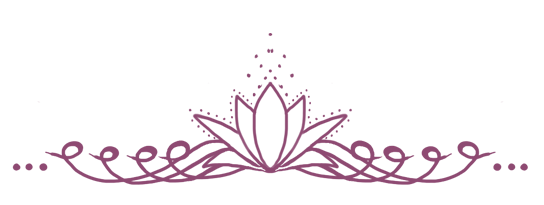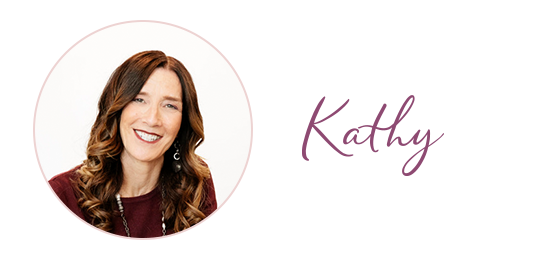Life is Easy

“Life is easy.” This isn’t a statement I hear very often. Do you?
Not in my mind nor in conversations with friends, clients, or strangers. Certainly not in blogs, podcasts, books, or snatches of conversation I encounter in the world. More frequently, I hear the following.
“Life is hard and let me tell you how ….”
I’m not challenging this premise. Certainly not this year of all years. Not with everything you are encountering in your life, influenced by your history of struggle and triumph, and spiced up by the pandemic. Life IS hard.
Personally, I had no intention of challenging this premise.
I’ve been immersed in hard. So has everyone. And yet, something grabbed hold of my attention and then infiltrated my perception this week. Challenging this premise with gusto. I went along for the ride and discovered something quite amazing.
Life is easy. So damn easy.
Before you stop reading, hear me out. There is a benefit to “rethinking” a position. It allows not only for cognitive flexibility and emotional agility, both of which influence your life and relationships in positive ways, it allows you to discover something new.
Turns out there is no end to new ways of “rethinking” your position.
This is what leads innovators, scientists, children, and mavericks in all professions to discover what is new and possible. For me, this shift in premise began with a drive into Philadelphia to visit someone in the hospital. I’m not a city person and don’t particularly enjoy driving in traffic on tiny streets seeking unfamiliar, overpriced parking garages. I’m happy to brave the city given the purpose of my visit, but it activated my bias that traveling to this destination involved hardship. (Sounds dramatic, but the word ‘hardship’ may be applied to minor and major experiences).
As I approached the Philadelphia Convention Center, I noticed lines of people outside.
Really long lines. I was stopped at the light, so I took a good look. There were blocks of people in the cold standing together in their masks. I realized this was the line for vaccination. I drove slowly past cars dropping off elderly passengers with their walkers and wheelchairs. And hundreds of people standing outside in line. Hundreds. There wasn’t enough room for social distancing. It was quite the crowd.
I was struck then and there by the contrast with my experience.
In my neck of the woods, people drove to the local mall, parked their vehicle and were immediately ushered into a vaccination setting housed in the now defunct Lord and Taylor. For some suburbanites, getting vaccinated was simple, efficient, and pleasant. Dare I say, it was easy.
In the space of two city blocks, I received a “mindset” intervention.
Mindset research indicates that single brief interventions are sufficient to make changes in perception and physicality with long lasting results. Such interventions may involve a simple reframing of an idea or a 3 minute video highlighting a specific mindset. That’s exciting because a small tweak in your perspective may have a large positive impact on your life.
In my case, in a few short minutes, I was shown the ease of living made possible by the availability of a plentitude of resources.
I recognized how very easy it was to journey into the city. I was comfortable in my car, listening to my music, eating my store bought breakfast, driving on paved roads, following map quest, certain of my safe arrival. I was protected from the elements, the exhaust of so many vehicles, and the crowds. I pulled into a parking garage, credit card in my wallet, sipping my spring water, while safely transporting my laptop.
The ease of my journey, and the wider ease of living, was shown first in comparison to those around me.
Simple comparisons like seeing people waiting for public transportation, lugging multiple shopping bags, bundled up in the chilly weather, or maneuvering with canes on crowded sidewalks. Driving in traffic, behind buses that couldn’t maneuver due to double parked cars, I went around the block a few times navigating one way streets.
This seemed harder than suburban living (to me), yet perhaps that wasn’t the case.
I watched people, used to living the city life, who strolled, walked fast, biked with confidence, ran for the bus, or meandered with their dog. Carrying coffee cups or water bottles, eating fast food, or cueing up at the food truck. Alone, busy on the phone, or talking and laughing with others, they flowed with the red and green lights without incident.
Life is easy when so many resources are available.

Like a slideshow, I was shown places that had few resources.
Like poorly developed roads, limited transportation, food they must harvest, unstable communication, and scarcity of money. I saw primitive health care, unstable living structures, limited commerce, an absence of trash collection, harsh work conditions, and difficulty accessing clean water.
The hospital I was circling took up many city blocks. A city within a city of healing, science, and care.
I entered this haven across a conveniently covered walkway where I was greeted, secured, dispatched to my location, and kindly guided when I was lost (twice). I passed the brightly lit cafe, the well stocked gift shop, an abundance of staffers in scrubs, and unit after unit dedicated to healing. The structure was enormous. The science was in evidence. And the sheer volume of dedicated staff, who were educated, employed, and seemingly enjoying their work caught my attention.
Illness is hard. On everyone.
Health care is expensive or out of reach for many. The anxiety, grief, and pain is hard to bear no matter where you are in this complex city. Passing room after room, visitor after visitor, I witnessed hardship as I steadily walked upright within my healthy body.
I walked through so much real estate filled with monitors, medicine, medical expertise, and compassionate care.
The layers continued to reveal themselves as I walked past units dedicated to healing cancer, neurological disorders, surgery recovery, psychiatric illness, intensive care, and more.
By the time I reached my destination, I was no longer focused upon hardship. I was not brought down by suffering. Instead, I was focused upon the availability of a wealth of resources that create ease in living and healing.
Even in the hardest of times and the most difficult places.
As I drove home, my mind was fully focused on the ease of living. My mindset tweak afforded me the opportunity to “rethink” not only my journey to the city, but my journey through my life. I could return to the normative thought bias that life is hard and succumb to this societal broadcast and conversational currency. Or I could venture into a new idea.
The benefit of a mindset tweak or the art of “rethinking” is that it removes blinders that led to your original bias.
Once removed, it takes effort to replace them. That sounds like hard work. It’s easier to go with the gratitude that spills over when I reach for my spring water, use my turn signal to safely change lanes, and sing off key loudly in the privacy of my lovely vehicle.
“Life is easy” does not diminish hardship nor invite the denial of magical thinking.
Rather, it invites gratitude and honest recognition of these amazing resources of modern society along for the ride. I’m listening to my thoughts, words, and approach to my day more carefully now. Ready to catch the old habit of “hardship” so I may look about me to notice the “ease” that is everywhere apparent.
I’m surrounded by luxurious ease. So you are you. For this, I feel a deep, heartfelt gratitude.
PS If you’re interested in a Mind Set tweak about stress, download my Self Soothe Strategy. This 60 page PlayBook and guided meditation will naturally help you adjust your approach to the stress of living. “Stress is life enhancing.” Imagine that. Scroll down on my Home Page to access this free resource. It’s a game changer.
Peace be with you and with all. No exceptions.


HeartWarming
News
Psychological research has revealed how bias drives our behavior, decision making, and manner of relating in the world. Adam Grant, author of Think Again, explores the benefit of reconsidering your beliefs about the world and your place in it. Turns out that the smarter you are, based on intelligence tests, the more you may struggle to update your beliefs. To put it another way, being good at thinking can make you not so great at “rethinking.” Written like a curious child scientist, Grant started his research with questions. The art of “not knowing” is powerful indeed.
